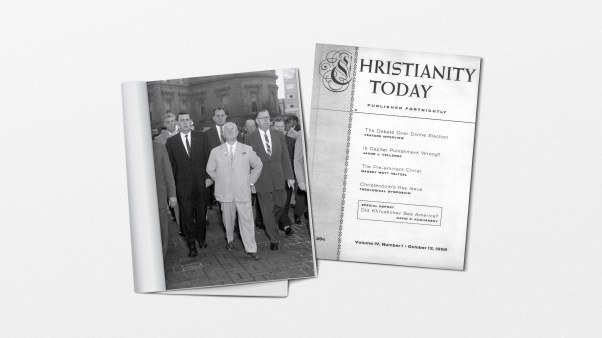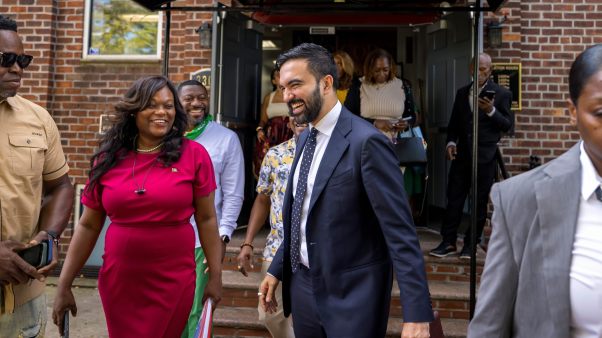I first encountered C. S. Lewis through his space trilogy. Though perhaps not his best work, it had an undermining effect on me. He made the supernatural so believable that I could not help wondering, What if it’s really true? What if there is a God and an afterlife and what if supernatural forces really are operating behind the scenes on this planet and in my life?
I was attending college in the late 1960s, just a few years after Lewis’s death. I ordered more of his books from second-hand bookshops in England because many had not yet made it across the Atlantic. I wrestled with them as with a debate opponent and reluctantly felt myself drawn, as Lewis himself had, kicking and screaming all the way into the kingdom of God. Since then Lewis has been a constant companion, a kind of shadow mentor who sits beside me, urging me to improve my writing style, my thinking, and my vision.
Lewis has taught me a style of approach that I try to follow in my own writings. To quote William James, “… in the metaphysical and religious sphere, articulate reasons are cogent for us only when our inarticulate feelings of reality have already been impressed in favor of the same conclusion.” In other words, we rarely accept a logical argument unless it fits an intuitive sense of reality. The writer’s challenge is to nurture that intuitive sense—as Lewis had done for me with his space trilogy before I encountered his apologetics. Lewis himself converted to Christianity only after sensing that it corresponded to his deepest longings, his Sehnsucht.
Lewis’s background of atheism and doubt gave him a lifelong understanding of and compassion for readers who would not accept his words. He had engaged in a gallant tug of war with God, only to find that the God on the other end of the rope was entirely different from what he had imagined. Likewise, I had to overcome an image of God marred by an angry and legalistic church. I fought hard against a cosmic bully only to discover a God of grace and mercy.
“My idea of God is not a divine idea,” Lewis wrote in A Grief Observed. “It has to be shattered time after time. He shatters it Himself. He is the great iconoclast. … The Incarnation is the supreme example; it leaves all previous ideas of the Messiah in ruins.” That book, conceived as his wife lay dying a most cruel death from bone cancer, unsettles some readers. Lewis had dealt with theodicy philosophically in The Problem of Pain, but tidy arguments melted away as he watched the process of bodily devastation in the woman he loved. I believe the two books should be read together, for the combination of ultimate answers and existential agony reflects the biblical pattern. The Cross saved the world, but, oh, at what cost.
Lewis saw the world as a place worth saving. Unlike the monastics of the Middle Ages and the legalists of modern times, he saw no need to withdraw and deny all pleasures. He loved a stiff drink, a puff on the pipe, a gathering of friends, a Wagnerian opera, a hike in the fields of Oxford. The pleasures in life are indeed good, just not good enough; they are “only the scent of a flower we have not found, the echo of a tune we have not heard, news from a country we have never yet visited.”
I found in Lewis that rare and precarious balance of embracing the world while not idolizing it. For all its defects, this planet bears marks of the original design, traces of Beauty and Joy that both recall and anticipate the Creator’s intent.
Alone of modern authors, Lewis taught me to anticipate heaven: “We are half-hearted creatures, fooling about with drink and sex and ambition when infinite joy is offered us, like an ignorant child who wants to go on making mud pies in a slum because he cannot imagine what is meant by the offer of a holiday at the sea.”
I doubt Lewis ever anticipated that almost half a century after his death several million people each year would buy one of his dozens of books still in print, and that Disney Studios would release movies based on Narnia with spinoff products available in every shopping mall. If informed of that fact, he would likely have shrunk back in alarm.
We writers are not nouns, he used to say. We are mere adjectives, pointing to the great Noun of truth. Lewis did that, faithfully and masterfully, and because he did so, many thousands have come to know and love that Noun.
Including me.
Adapted from Mere Christians: Inspirational Stories of Encounters with C. S. Lewis, forthcoming from Baker Publishing.
Copyright © 2008 Christianity Today. Click for reprint information.
Related Elsewhere:
Yancey’s previous columns are available on our site.
More articles on C.S. Lewis, including our 2001 cover story, are collected in our full-coverage section.









